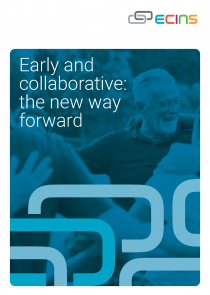Case Study: Largest County Lines Project in the UK
Case Study 1. Largest CountyLines Project in the UK Geographical area: Pan London Project Aim: ‘This project will develop and deliver a support service for young people who are more →
Keeping up-to-date with industry best practice and new regulations in early intervention, collaborative work practices, safe data sharing and safeguarding for vulnerable people is at the heart of our business and innovations. This is a place to share what we learn.
Case Study 1. Largest CountyLines Project in the UK Geographical area: Pan London Project Aim: ‘This project will develop and deliver a support service for young people who are more →
A unique service in Peterborough, dedicated to reducing the number of children permanently excluded in schools, is helping to provide a range of specialist support to children with additional needs more →
Across Shropshire, partners are using ECINS to work together and share relevant information. The multi-agency approach, the training that has been undertaken, the engagement with schools and the partnership with more →
Every year around 5’000 young people are excluded from school. Many of these turn to crime and only 15% return to mainstream education. In an effort to intervene earlier, Northamptonshire more →
Allan Lugrin, Families with Future Analyst at Borough of Poole spoke to us about the work his team is doing around Troubled Families and ECORYS Submissions. “Initially we were using more →
Waveney District Council has been using E-CINS since November 2012 to manage their award winning Troubled Families Programme, Suffolk Family Focus. Troubled Families Intervention Officer Daniel Chapman spoke to us more →
by ECINS Founder and CEO, Gary Pettengell ECINS has a very different way of supporting the Troubled Families Agenda. It is much more than just a bespoke Troubled Families software more →
One of the key advantages of the ECINS Family Assessment Tool is the considerable amount of time it saves practitioners and key workers including Troubled Families Co-ordinators. Usual practice, until more →
With the news that the Government has commissioned a consortium of research bodies to keep track of its Troubled Families Programme, Councils are now tasked with compiling progress reports and more →
The process of creating an assessment is quick and simple. When an assessment is started it automatically ‘pulls through’ the family members you have previously identified. This speeds up the more →

Want to know how early intervention and collaborative practices can reduce costs and improve client outcomes?
Fill in the form to receive Early and collaborative: the new way forward.
We promise to keep your email safe.